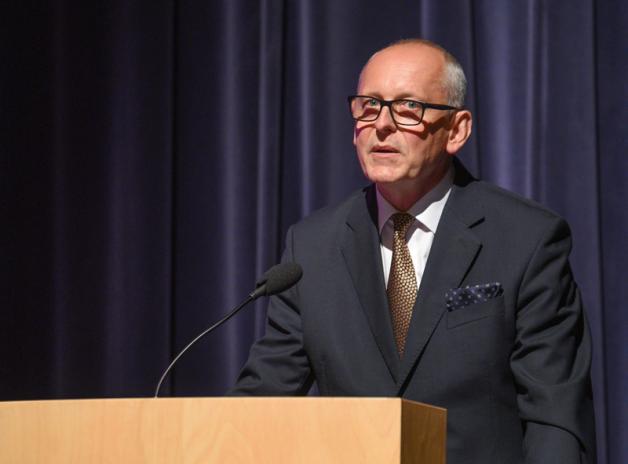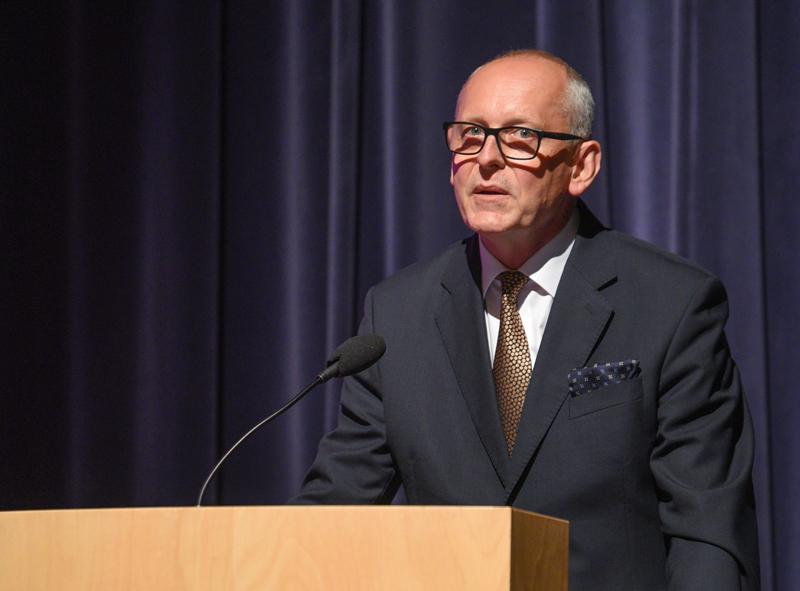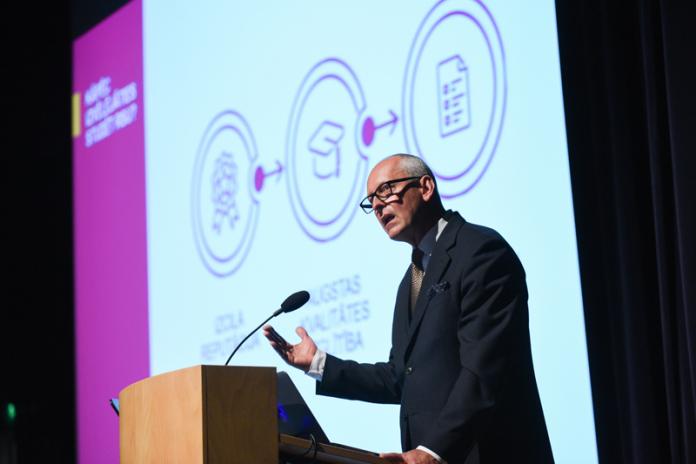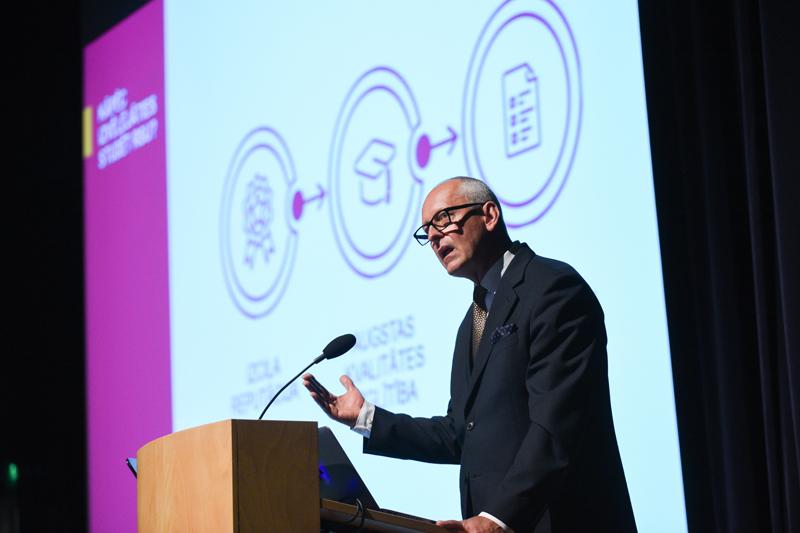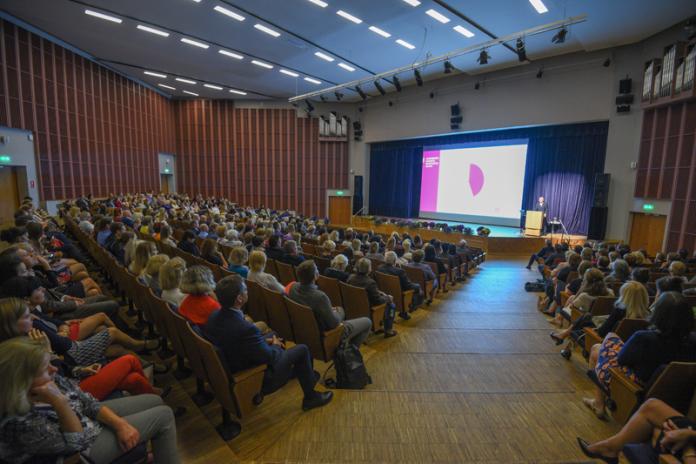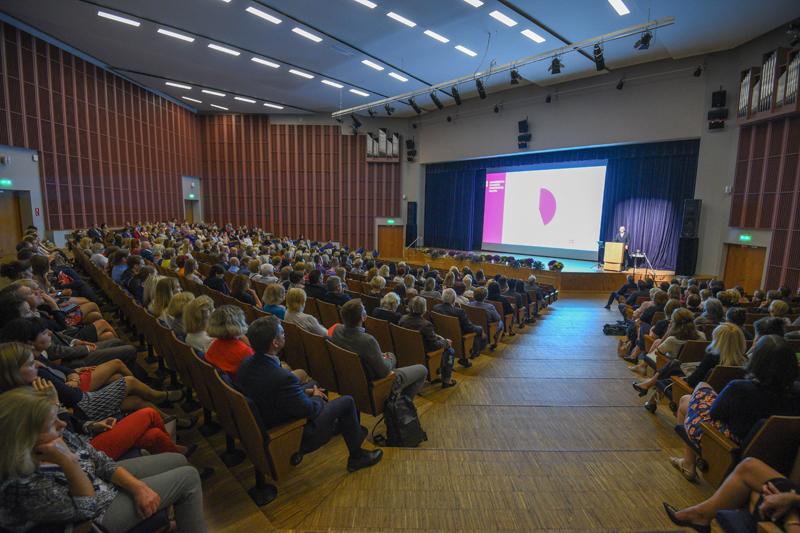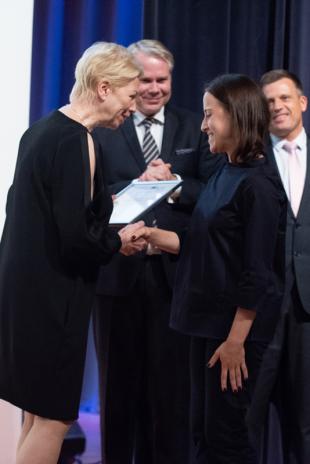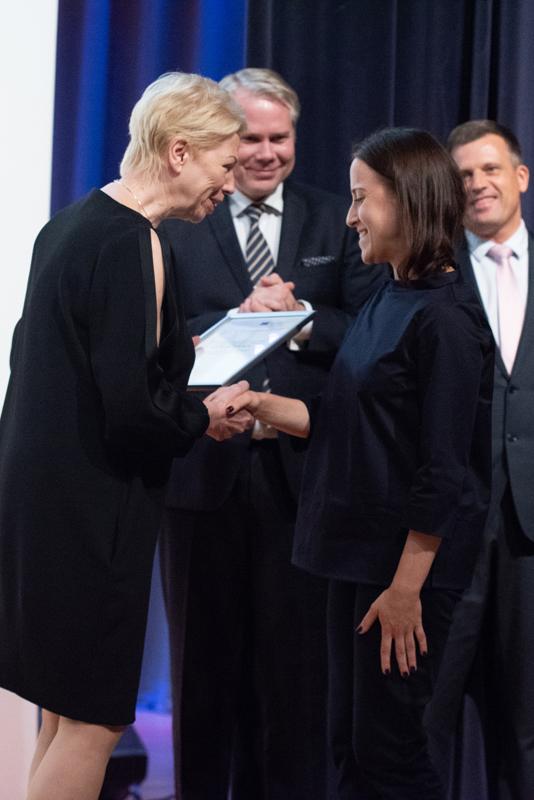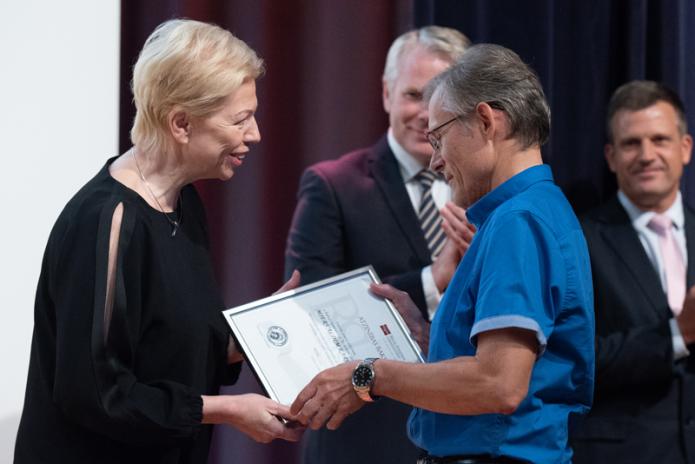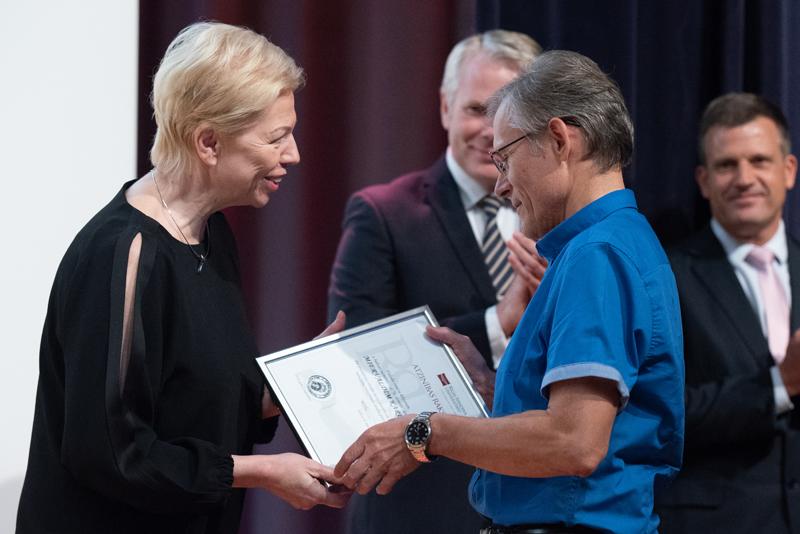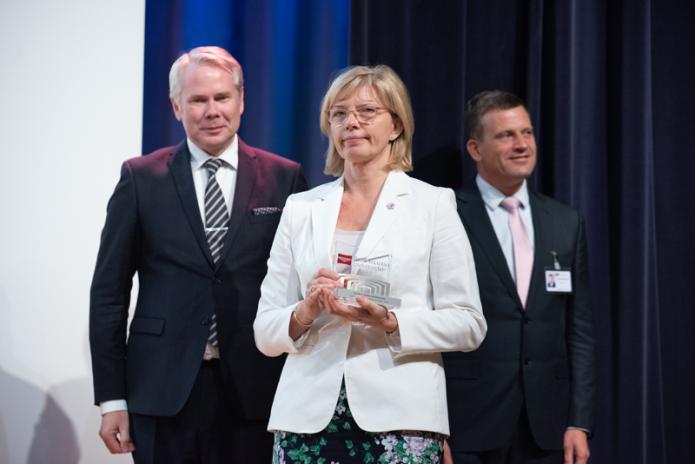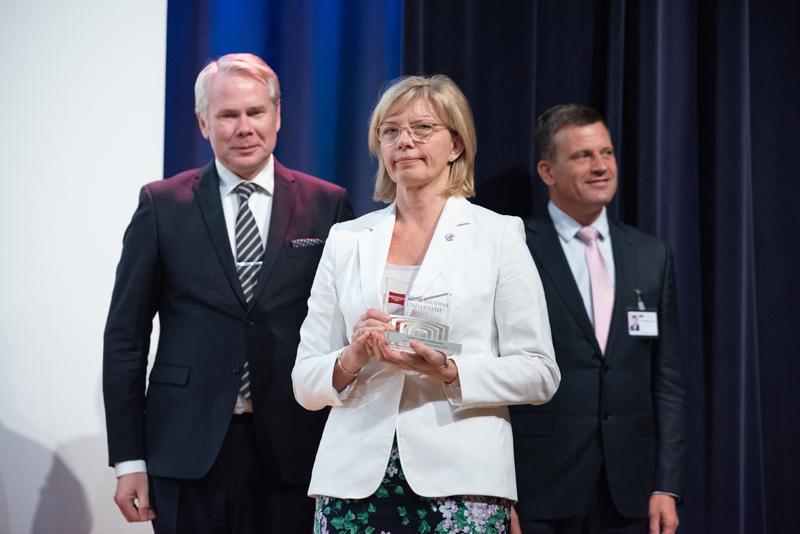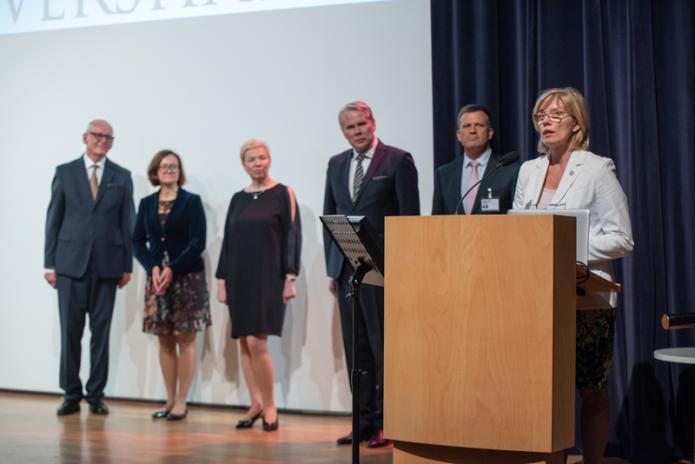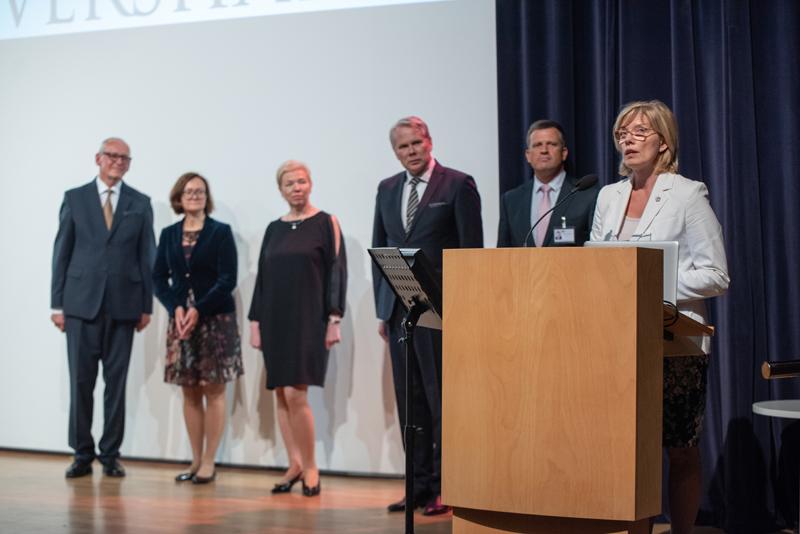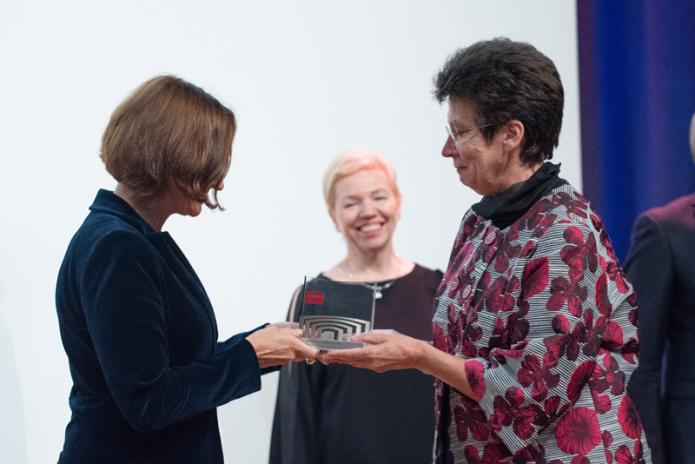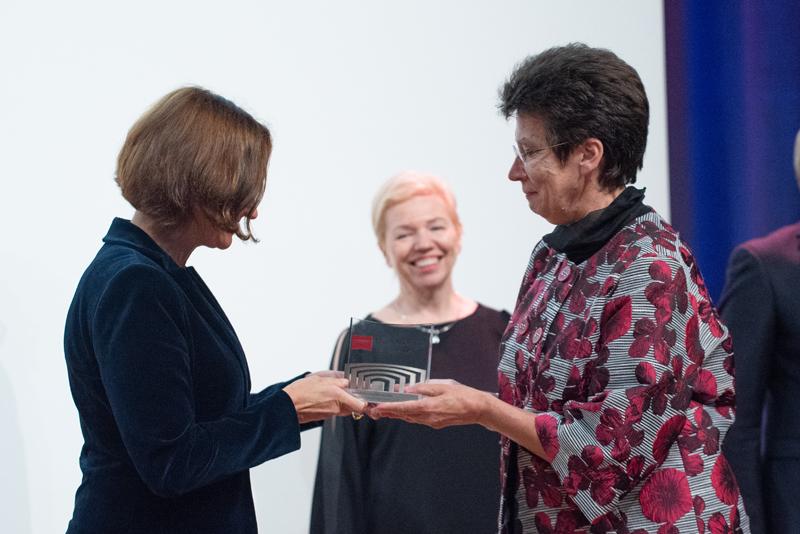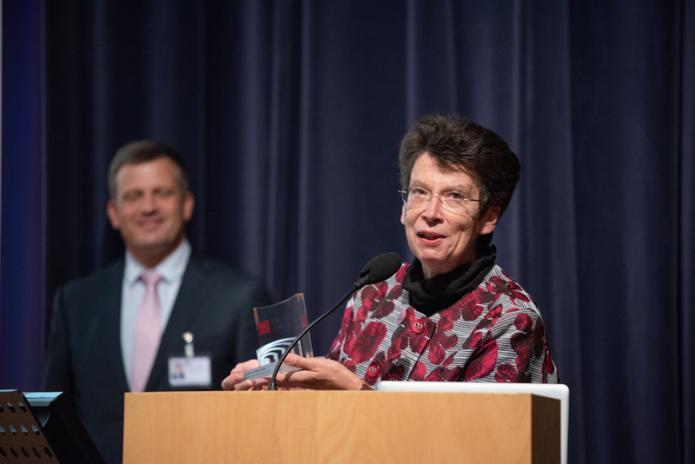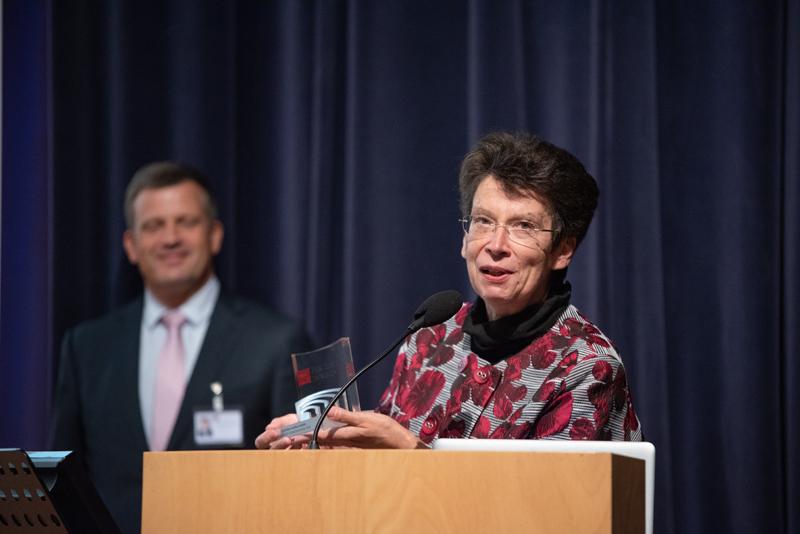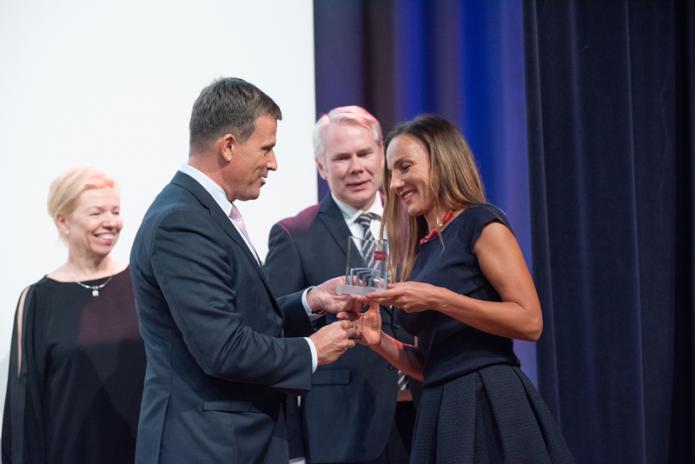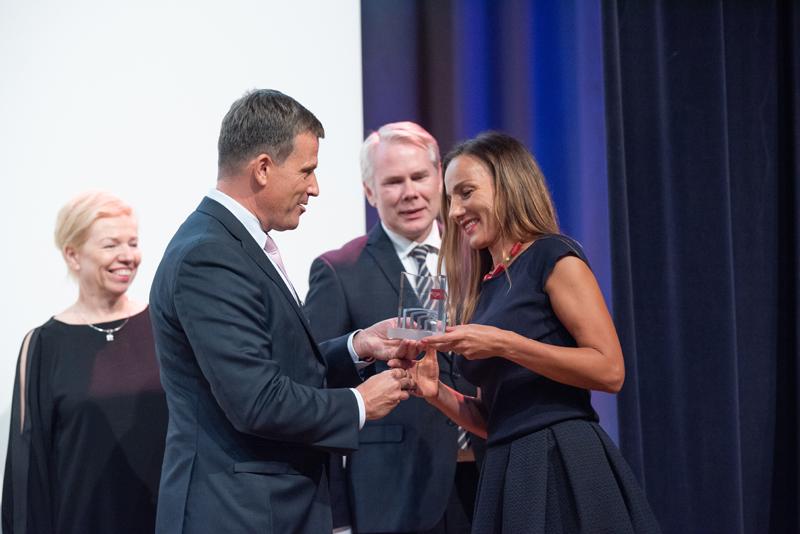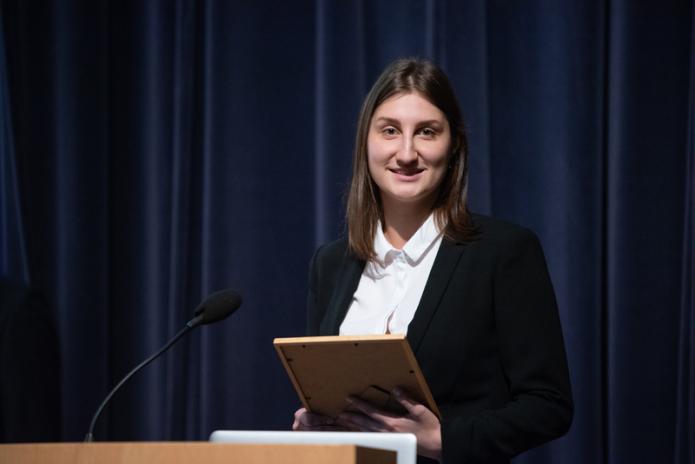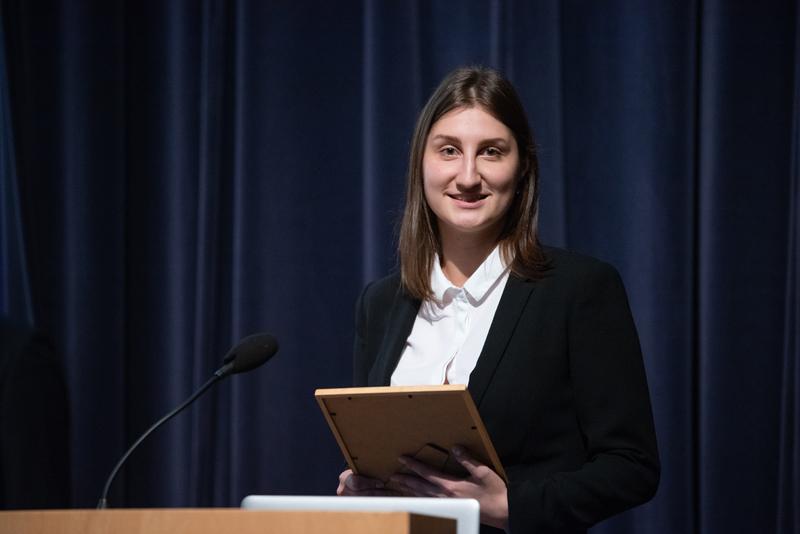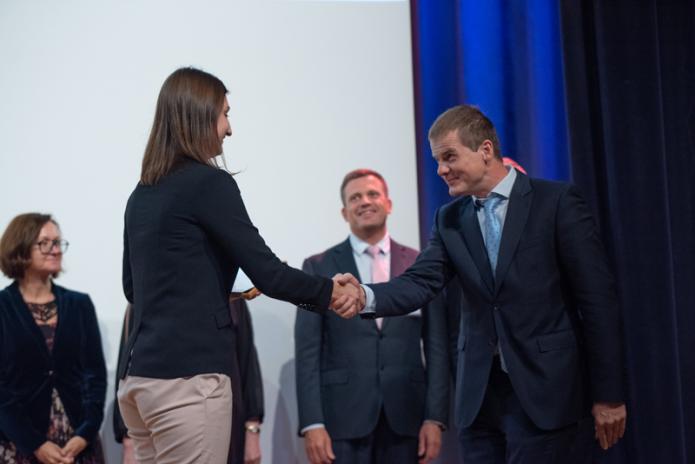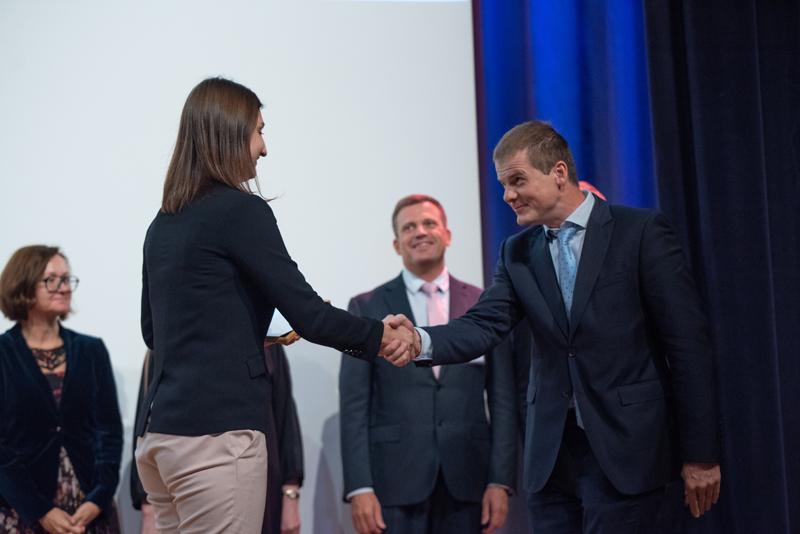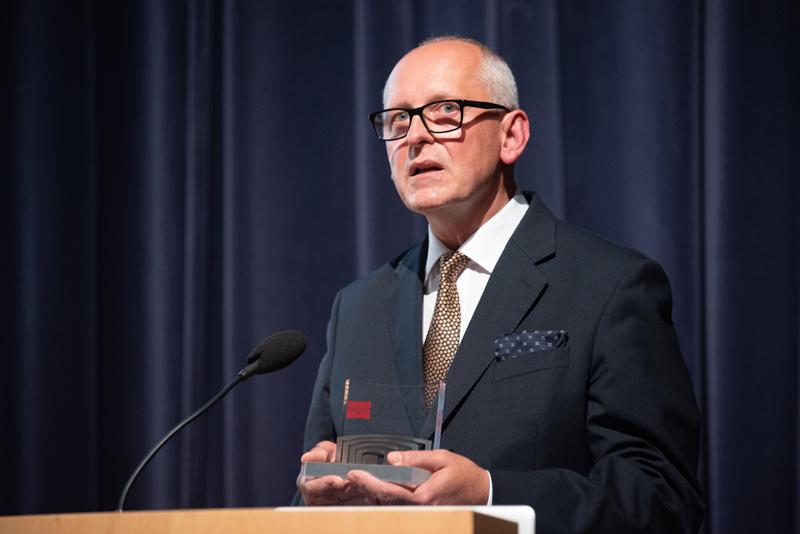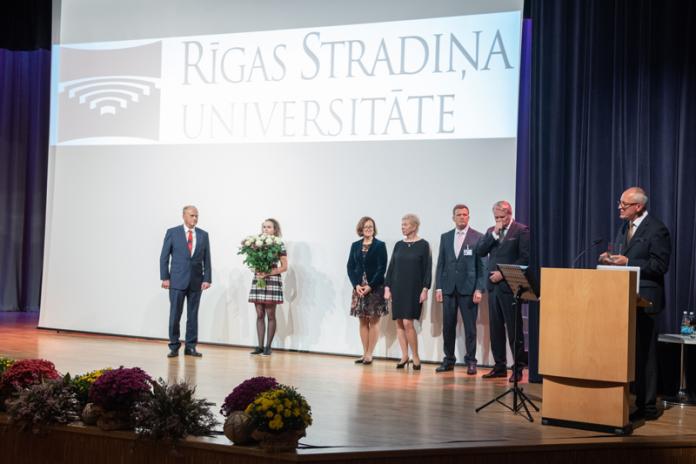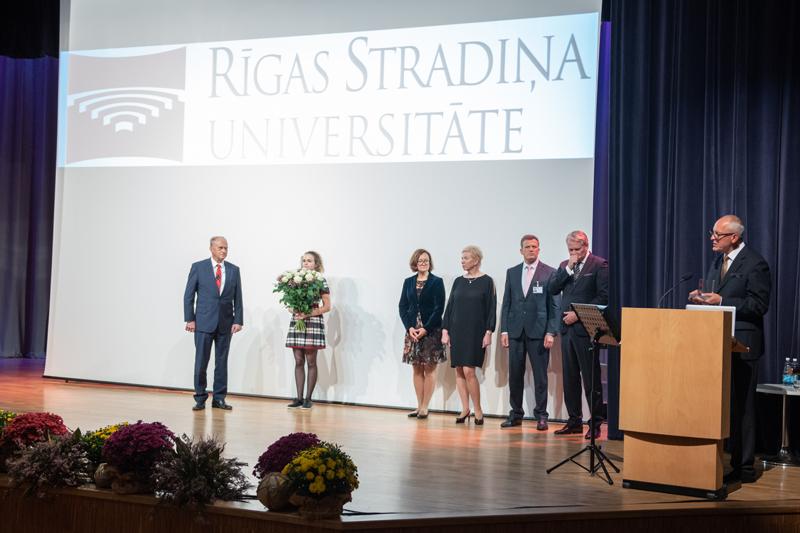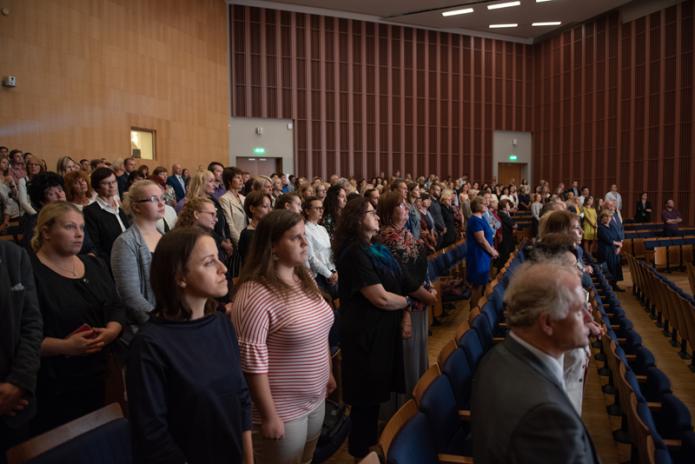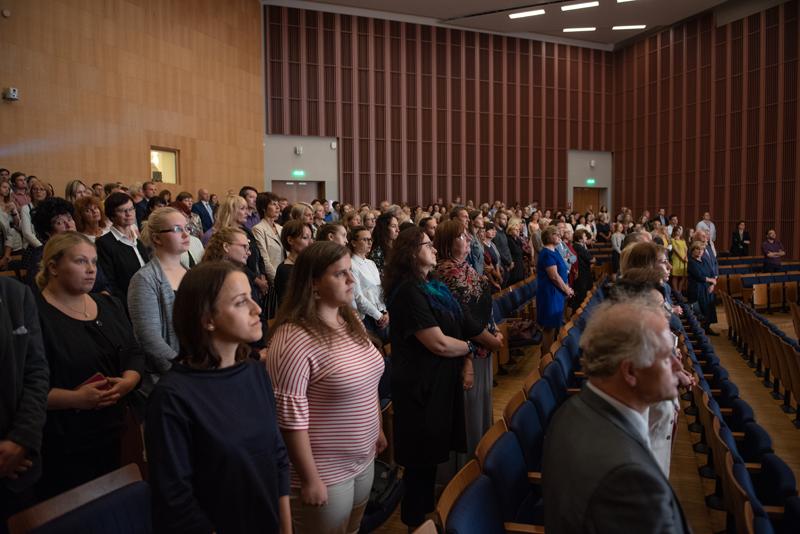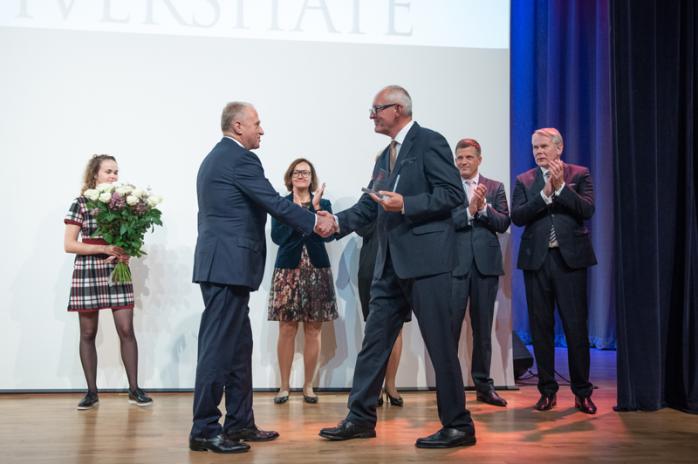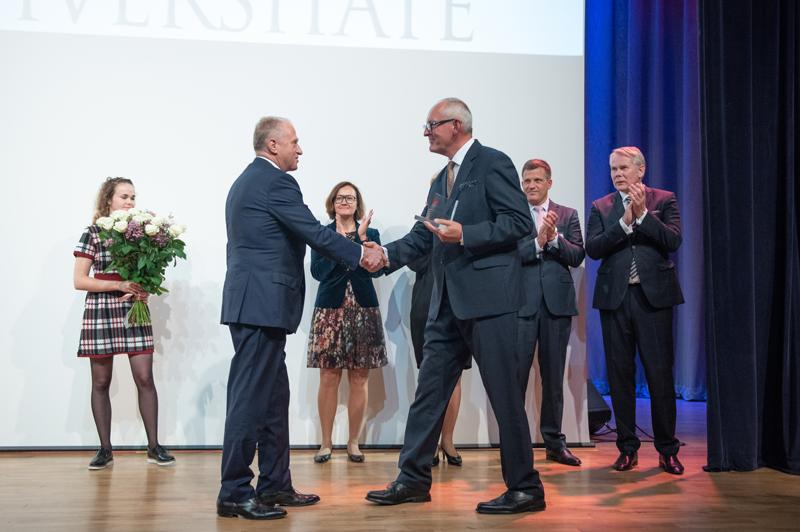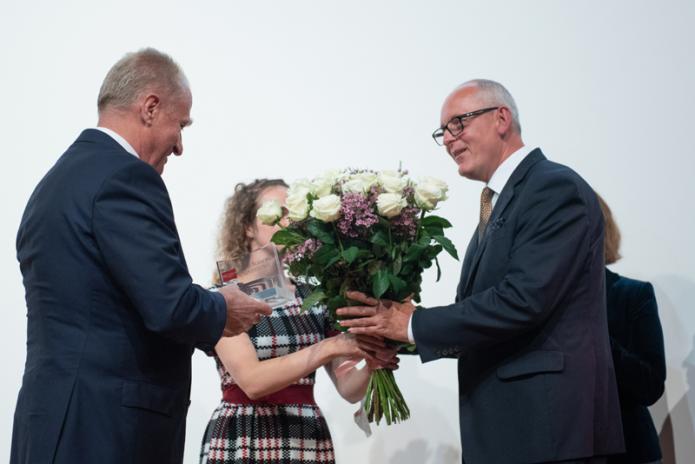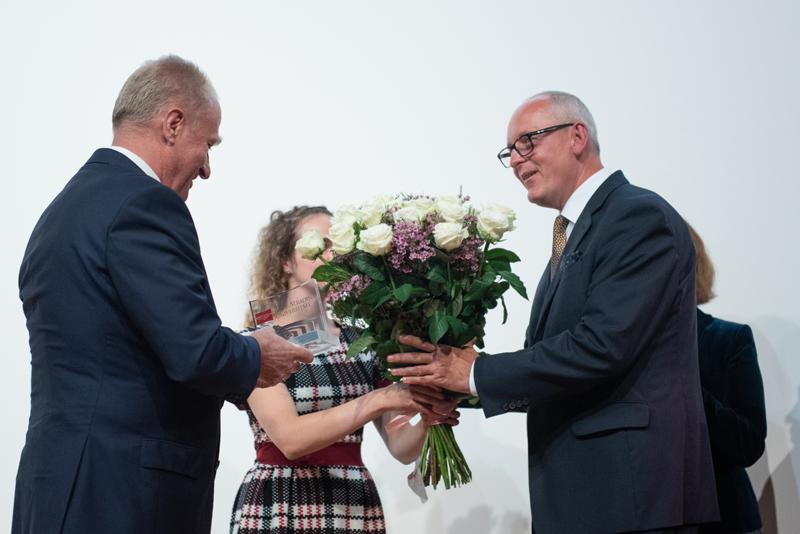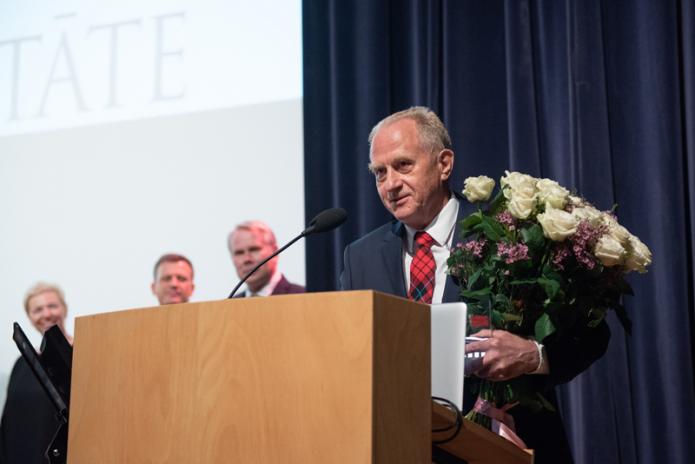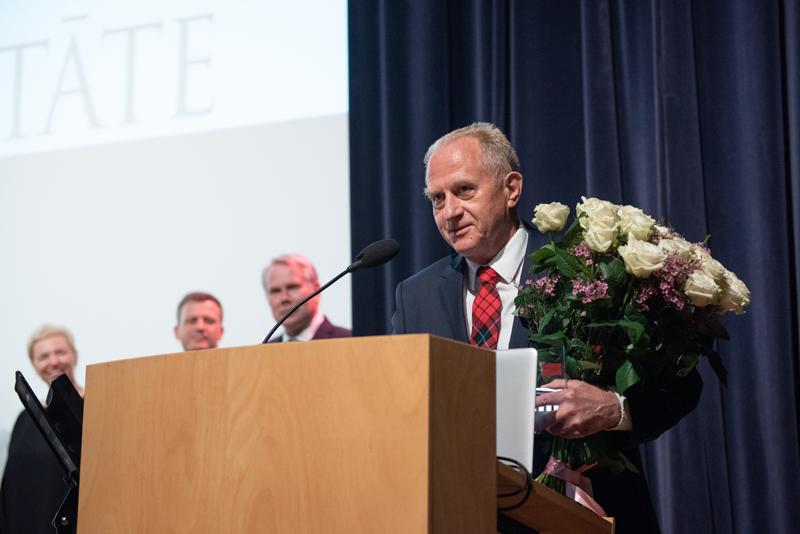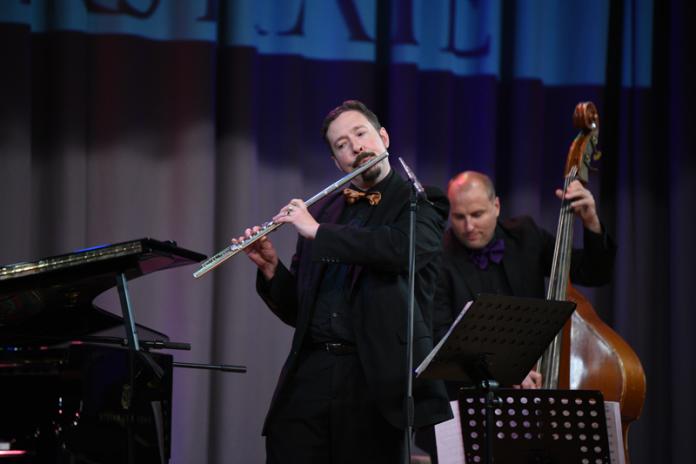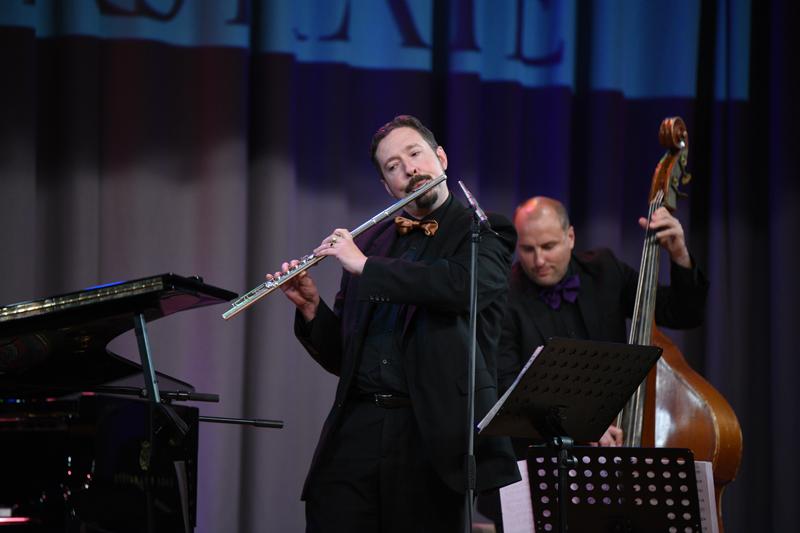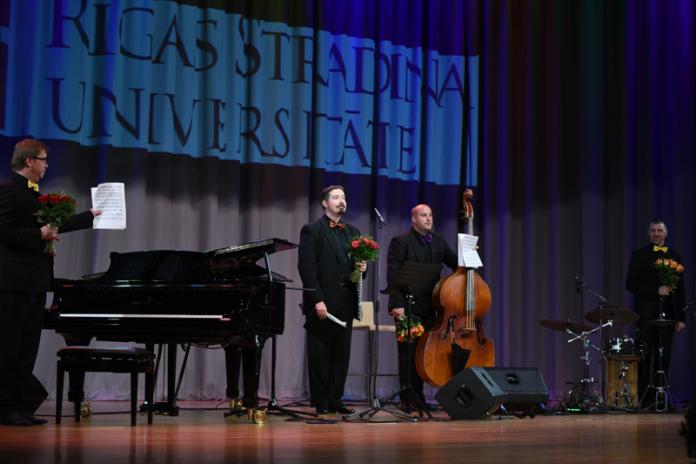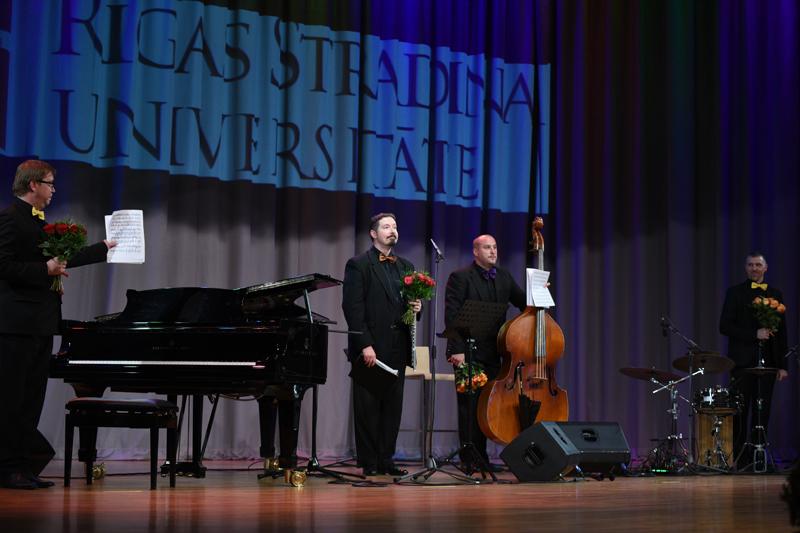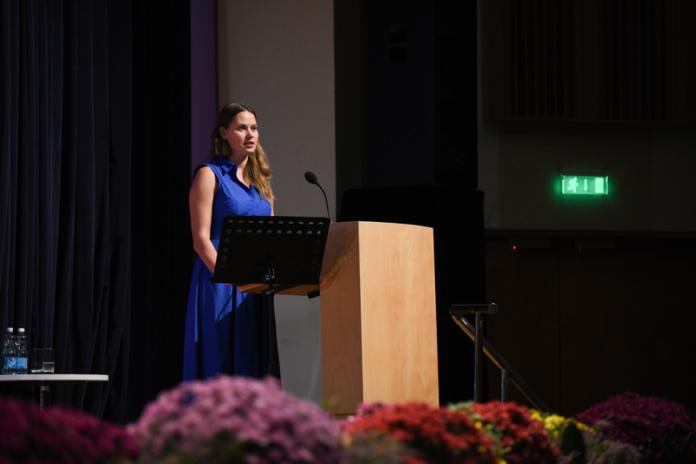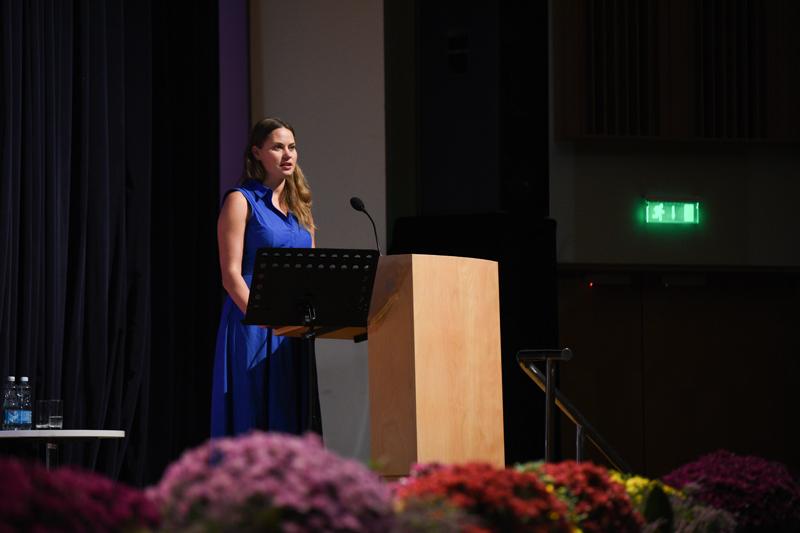Development paths defined and RSU awards presented at RSU Academic Meeting
The traditional Rīga Stradiņš University (RSU) Academic Meeting was held on 4 September, gathering more than 400 university employees. The meeting began with RSU rector Prof. Aigars Pētersons reviewing the accomplishments of the university in 2018 and reminded of the development paths to be taken in the future. The meeting concluded with the presentation of the RSU E-Awards and Annual Awards in several categories, and the employees enjoyed a musical performance.
Prof. Aigars Pētersons emphasised that thanks to the joint systemic and diligent efforts of the RSU staff, the past ten years of RSU efforts have resulted in the university being ranked by QS among the top universities worldwide. For the second year in a row RSU has been recognised as the most reputable university in Latvia and a leader in terms of the number of international students in the Baltic States. This is testified by the enrolment statistics for 2018 – this year the number of newly-admitted students increased by 13% compared with the previous year. Besides, the competition for study places in most of the study programmes was high and as a result very knowledgeable and highly motivated students were enrolled, among them international students.
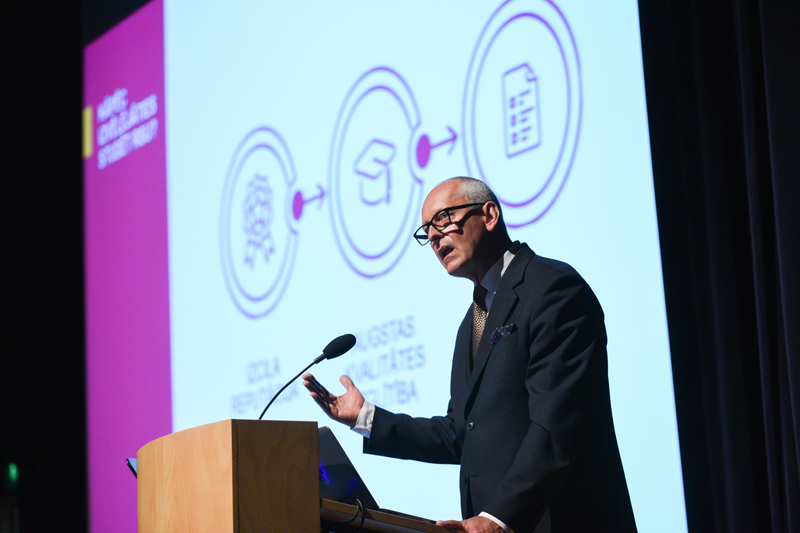
Prof. Aigars Pētersons speaking at the RSU Academic meeting.
The RSU values will remain unchanged: cooperation, respect, loyalty and people.
In the upcoming year of studies RSU plans to continue the development strategy – to maintain the quality of studies, develop the study and research infrastructure, as well as to expand internationalisation by attracting visiting professors, creating new study programmes in English and establishing cooperation with partner hospitals abroad. In addition, RSU also intends to establish closer ties with clinical university hospitals and regional hospitals by attracting medical residents and young physicians.
Simulation-based education is the strength of RSU. In the upcoming year of studies we are planning to expand its use in the healthcare and social sciences study programmes.
RSU will continue to conduct research work thereby increasing performance indicators in science. For example, in 2019 RSU will host an extensive international Science Week.
Finally, the RSU rector wished everyone a successful and creative academic year and invited everyone to participate in RSU teambuilding activities and the events dedicated to Latvia’s centenary.
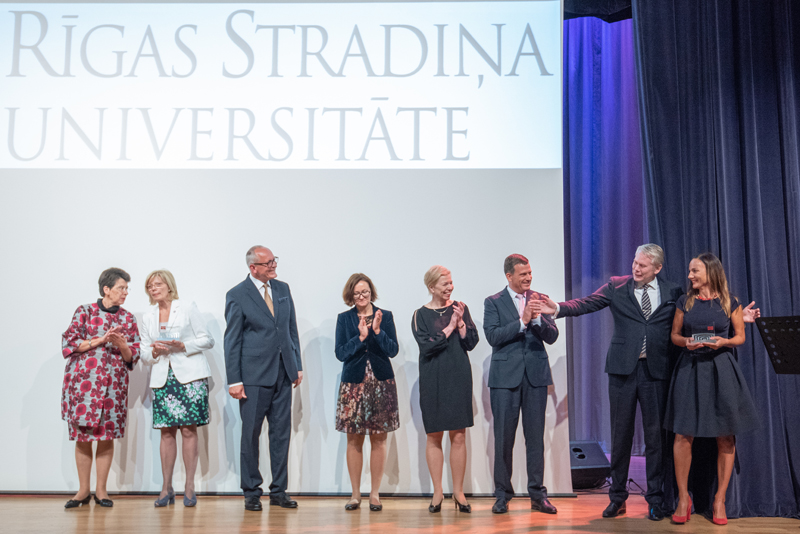
This was followed by the presentation of RSU E-awards in several categories. A contemporary study process goes hand in hand with the e-environment, and for this reason the first award presentations, in three categories, were the RSU E-awards:
- The award in the category E-Junior was presented to Assistant of the Department of Biology and Microbiology, Dace Rezevska,
- The award in the category E-Senior was presented to Lecturer in the RSU Language Centre, Miervaldis Karulis,
- The Department of Dosage Form Technology received the award as the E-Structural Unit .
The Health Management Lecturer Group was recognised as the Academic Structural Unit of the Year, whereas the award in the category Scientific Structural Unit of the Year was presented to the Institute of Public Health. This was followed by the Development and Project Department receiving an award in the category Administrative Structural Unit of the Year.
Chair of the RSU Student Union Linda Skulme presented a special gratitude award to the Department of Infrastructure for successful cooperation and providing joint solutions.
Finally, RSU rector Aigars Pētersons presented the Lifetime Achievement Award to outstanding cardiac surgeon Professor Romans Lācis for his great contribution to RSU development during the period of over 40 years he has spent working at the university.
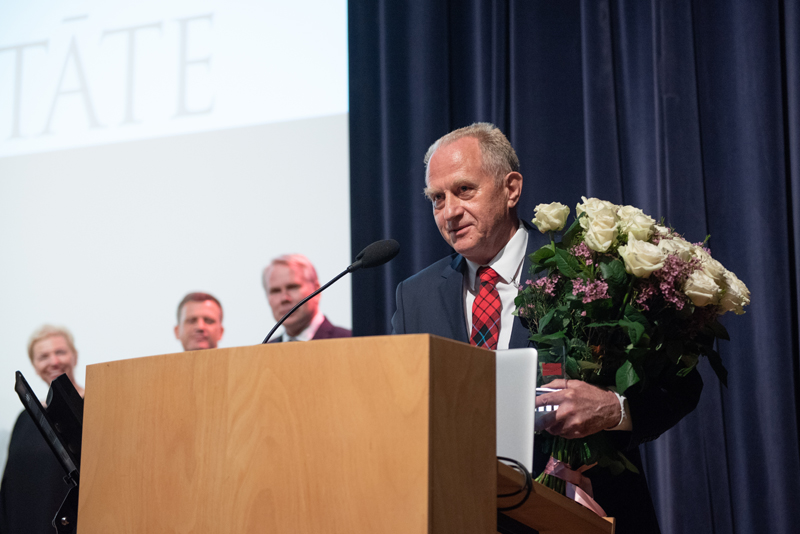
Professor Lācis has headed the RSU Senate and Alumni Association. In 2002, the first heart transplant in Latvia was performed by Romans Lācis and his team. The professor shares his knowledge and experience with his younger colleagues, and a new generation of cardiac surgeons have grown under the tutelage of the professor. Romans Lācis is still active in clinical, paedagogical and administrative work.
Related news
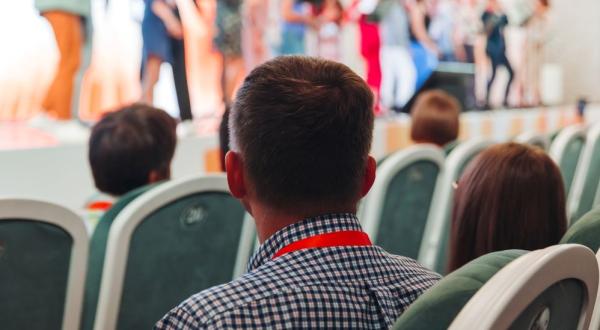 Experts from across Europe will participate in this year's Rare Disease ForumFor RSU Employees, Conferences, workshops, Research, For Students
Experts from across Europe will participate in this year's Rare Disease ForumFor RSU Employees, Conferences, workshops, Research, For Students